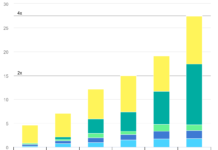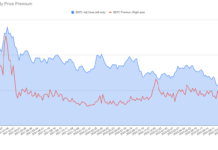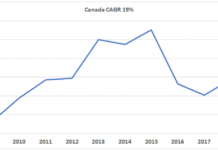by Debra Fiakas CFA
Last week news agencies reported plans by Molycorp (MCPIQ: NYSE) to move forward with plans to sell major assets as part of a plan to emerge from bankruptcy. Molycorp was the single largest producer of rare earths in the U.S. until it discontinued product at its Mountain Pass mine in Colorado. Molycorp filed for bankruptcy protection in June 2015 after it became apparent that it could no longer support the debt on its balance sheet on historically low selling prices for its rare earth materials.
The turn of the tide for Molycorp and its rare earth business plan surprised few who follow the mining industry. The U.S. had led the way in the rare earths arena. The Mountain Pass mine had been the world’s leading producer of these unusual metals in the 1960s when new color television designs escalated demand for europium. It took a while for the Chinese to catch up, but by the 1990s producers there had increased production to rival that of Mountain Pass. What is more, strategists in China had also figured out how to use low prices to force competitors out of business. The machinery came to a stop at Mountain Pass. Other mines in Japan and elsewhere followed suit, leaving China with as much as 95% of the market for rare earth materials.
Then the Chinese decided to curtail exports of rare earths. Sensing an opportunity to grab customers from the Chinese and sufficiently high selling prices to justify investment, Molycorp management decided the time was ripe to return Mountain Pass to its previous glory. Why anyone would invest billions on the vagaries of Chinese business and political strategies seemed a bit ludicrous to me, but it passed the tests of lenders who extended over $1.7 billion in loans to Molycorp.
Of course, about the time that Molycorp and its lenders became fully committed to the Mountain Pass plan, Chinese rare earths producers were treated to a reversal in policy by government officials. In an attempt at compliance with World Trade Organization rules, China resumed rare earth exports and the world prices plummeted.
Molycorp’s business model at Mountain Pass was no longer viable at the new, lower prices. Production at Mountain Pass was confined to the ‘light’ rare earths, europium oxide, dysprosium, lanthanum oxide and cerium oxide, which commanded the lowest prices of all. Furthermore, Molycorp management had experienced problems in coming to market in the first place. There were impurities in initial rare earths production and low-quality construction of tanks at one of its plants ended up increasing costs and delaying achievement of target production.
To make matters worse, all the while that the Chinese were holding back exports of rare earths and Molycorp was gearing up production at Mountain Pass, manufacturers of magnets, batteries, electronics devices and other items requiring rare earths got busy figuring out ways to get along with lower amounts of rare earths. As a consequence demand for rare earths has diminished.
By the time Molycorp finally got to the rare earth materials market its production cost was as much as $20 per kilogram. With the Chinese now back at the sales block and customers reluctant to pay top dollar, the rare earth portfolio is selling for around $10 per kilogram.
The creditors of Molycorp are now left holding the bag and it is apparently a stinky one. Certain of Molycorp’s junior lenders have been at odds with one of the more significant creditors, Oaktree Capital Management. There is good reason to argue. Initial bids for the company’s assets, which will go to the auction block on the first week in March 2016 and are valued at $2.5 billion on the company’s balance sheet, have risen from a nickel on the dollar to more than a dime on the dollar. That means there will be more money available to repay creditors.
Shares of Molycorp closed last week at $0.05 per share, suggesting that after debt the value of the company is $14 million. It appears shareholders and traders have some optimism that Molycorp can emerge from bankruptcy with some sort of business intact. The company’s mine operation is a money loser, but its downstream processing facility in China is turning a profit. Can this management team be trusted to craft a viable business with whatever assets are left after the March auction? So far their business strategies have been wrong and execution weak at best. The March asset auction might be worth watching to see what sort of asset base is left over and whether the current management team survives the battle that is unfolding as the date draws near.
Debra Fiakas is the Managing Director of Crystal Equity Research, an alternative research resource on small capitalization companies in selected industries.
Neither the author of the Small Cap Strategist web log, Crystal Equity Research nor its affiliates have a beneficial interest in the companies mentioned herein.









To bad you didn’t put as much time into that catchy headline as you did researching the company and industry in general.
For starters, the mine site is located in Mountain Pass, California, not Colorado.